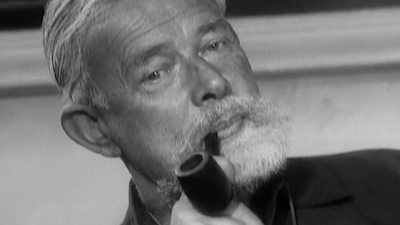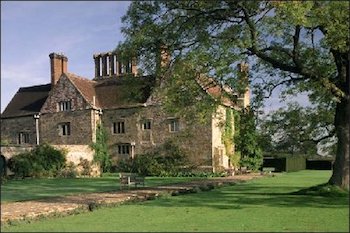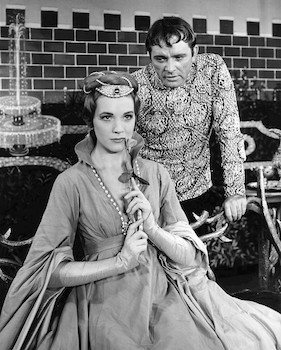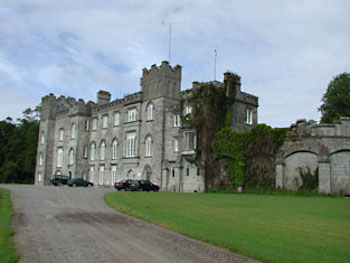
‘Heaven take my soul, and England keep my bones!’ are Arthur’s last words in Shakespeare’s King John (IV.iii.10), as he leaps from a castle wall. T. H. White, author of The Goshawk and The Once and Future King (another Arthur), among many other books, had a slightly different version, the last four words of which gave him the title of his 1936 volume: ‘God keep my soul/ And England have my bones.’ It ended up, he said, as ‘a book about the tangible side of country life’, adding that: ‘Fishermen will be maddened by the flying, aviators by the snakes, zoologists by the instructions for playing darts.’ Trying to imagine ’the kind of person who will bear with every digression’, he concluded that, should such a person exist, ‘he will be an amateur like myself: a reader with a forgiving mind, not a critical one: somebody not fascinated by sherry parties, who can see the point of an England defined by negatives.’[1]
White’s letter to David Garnett (his second) asking Garnett to look at England Keep My Bones marked the beginning of their nearly thirty-year friendship, ‘a friendship which, reversing the usual order, ripened into acquaintance’, Sylvia Townsend Warner explained, ‘for they met seldom, and never for long at a time. In fact, they were better apart. When they met, they got on each other’s nerves.’

But then, with strangers, as another friend remembered, White ‘could be quite odious; rude and suspicious if he thought they were lionizing them, still more if he thought they weren’t; shouting down anyone who disagreed with his more preposterous assertions or even ventured to interrupt.’[2]
White’s book is often lyrical, but also marked by frequently pugnacious or arresting statement—‘Nowadays we don’t know where we live, or who we are’ (3), ‘I felt happy and interested, as if I had been condemned to death’ (20-21), and ‘Even sitting in the same chair rots one’s soul. Decent men ought to break all their furniture every six months’ (65). There are curious anecdotes and details, such as the origins of Lewis Carroll’s Mad Hatter (42) and, writing of ‘the shire’ in which he lives, located about half-way between ‘the doze of Norfolk and the fierce friendliness of Gloucestershire’ (4), he notes that it boasted the first recorded beheading and the last person to be gibbeted (110). But there are also evocative statements such as ‘Falling in love is a desolating experience, but not when it is with a countryside’ (22), which seem expressly designed to be plundered by people like me – and have been. The book’s devotion to ‘outdoor pursuits’ prompted the reviewer James Agate to remark—quite understandably, I think—‘It is about subjects in which I am not even faintly interested. It is entrancing’ (quoted by Warner, 87).
It was on this day 85 years ago, 18 August 1935, that White scored 180 with three darts—‘for the first and last time in three or four thousand games of darts’—in The Rose and Crown at Burwash, ‘of which the proper pronunciation is Burridge’ as Henry James remarked to Ford Madox Ford (who already knew).[3] ‘It was not a landlord’s board’, White added, by which I take him to mean that if the target areas for the highest scoring darts are slightly enlarged there is a correspondingly larger chance of successful, happy, and thus higher-spending, punters. ‘Burwash’ may, though, be pronounced ‘Burrish’: it certainly was by a helpful National Trust volunteer, to whom I put the specific question on my one visit to Bateman’s, the fine Jacobean house in which Rudyard Kipling—a story of whom was the occasion of James’s pronouncing the name to Ford—made his home between 1902 and his death in 1936. I bought a bag of flour from the 17th century—and still working—mill which could at that time be seen in action most Wednesday and Saturday afternoons.

The setting is remarkable: the house itself, the garden, the 1928 Rolls Royce Phantom 1 – and the mill. Kipling installed a turbine generator in 1902 and, in the autumn of that same year, published a short story, ‘Below the Mill Dam’. The story, collected in Traffics and Discoveries (1904), largely comprises a conversation between the cat and the rat and is widely seen as a political fable expressing Kipling’s dislike of the attitudes and policies exemplified by Arthur Balfour. David Gilmour, author of The Long Recessional: The Imperial Life of Rudyard Kipling, thinks the cat is Balfour (or at least talks like him): ‘there is no problem identifying the prototype of the Grey Cat’.[4]
That memorable visit to East Sussex was heavily Ford Madox Ford-related: he lived for years in the area, and his books—ten, fifteen, twenty years later—are saturated with its place-names and roads and buildings and outlooks. But, with an hour or two to spare in the afternoon, with Bateman’s on the route back to the station, Kipling-world became irresistible. Perhaps I’ll get back there – sometime – for a longer, slower look.
Notes
[1] England Have My Bones (1934; London: Macdonald Futura, 1981), v-vi.
[2] Sylvia Townsend Warner, T. H. White: A Biography (New York: Viking, 1968), 86; John Verney in the ‘Foreword’, 6.
[3] Ford, Return to Yesterday (London: Gollancz, 1931), 7.
[4] David Gilmour, The Long Recessional: The Imperial Life of Rudyard Kipling (London: John Murray, 2002), 181.








